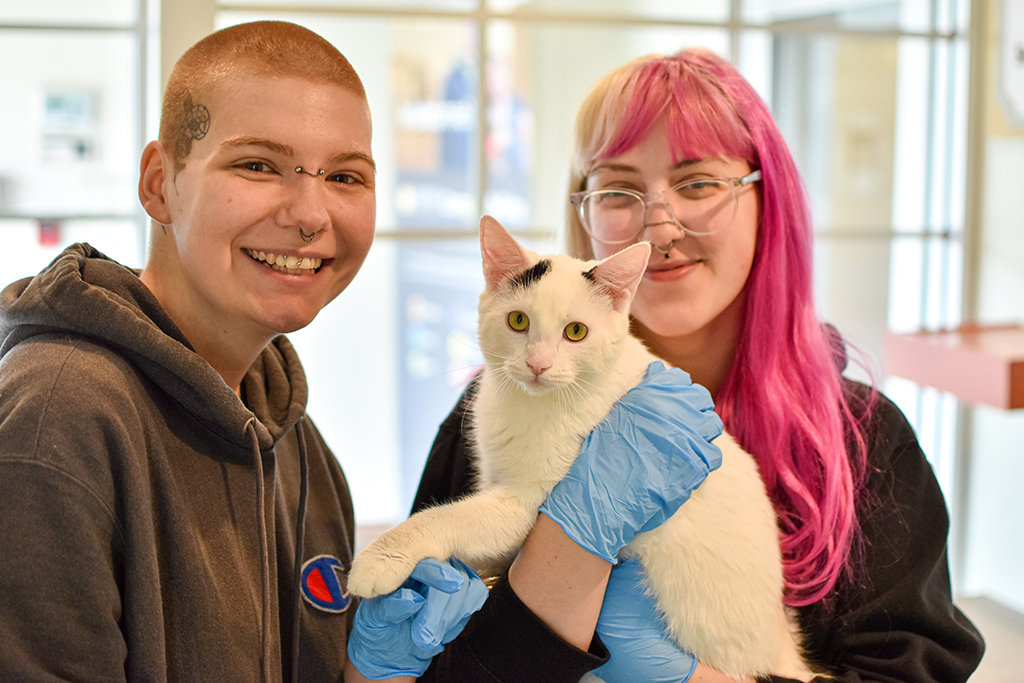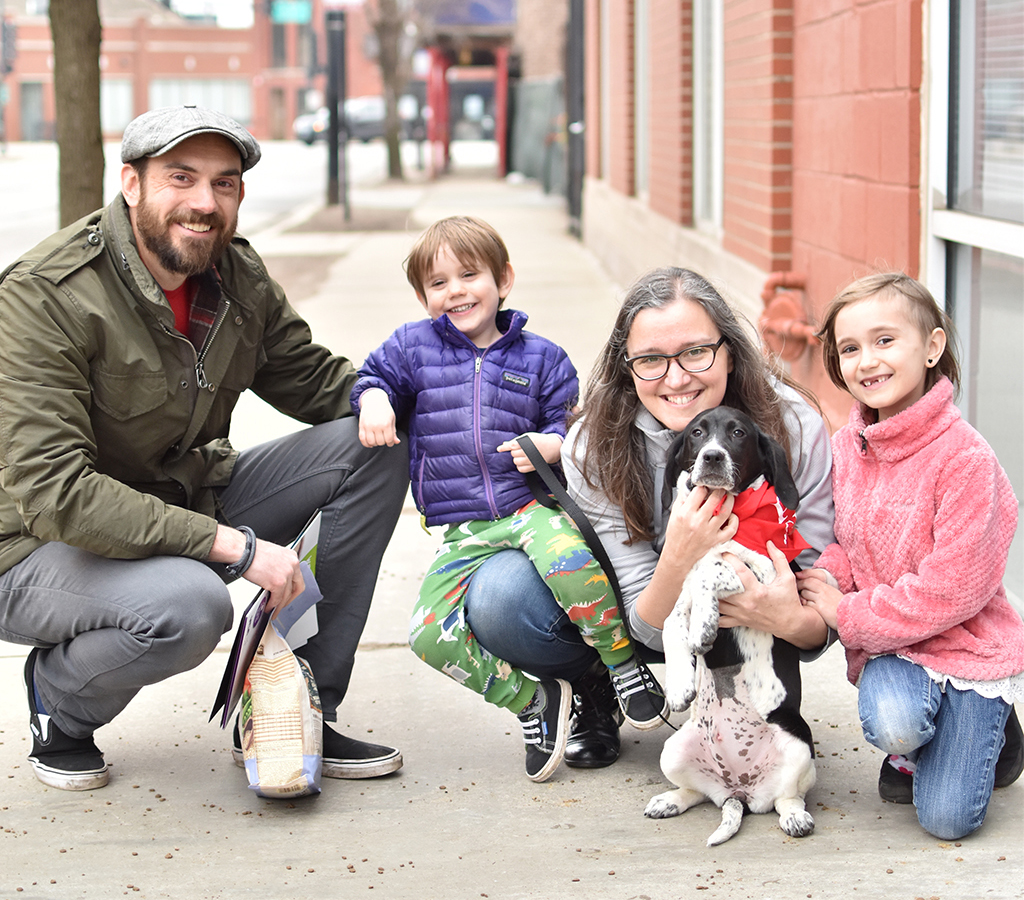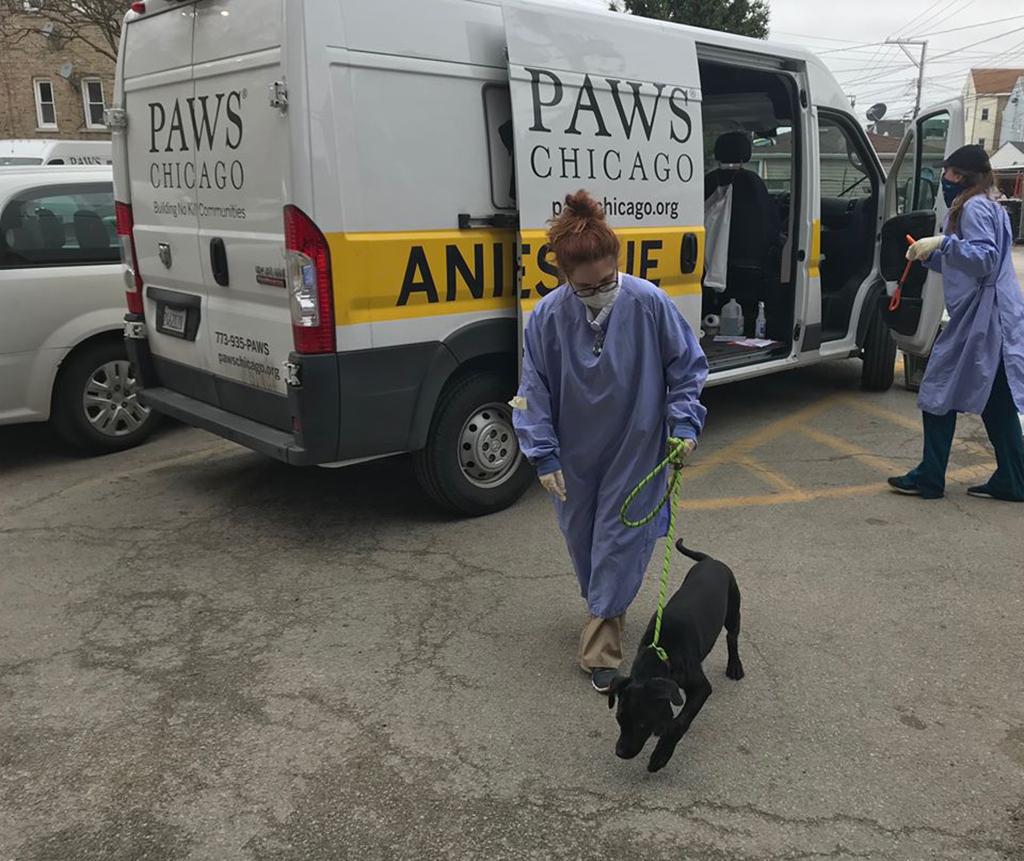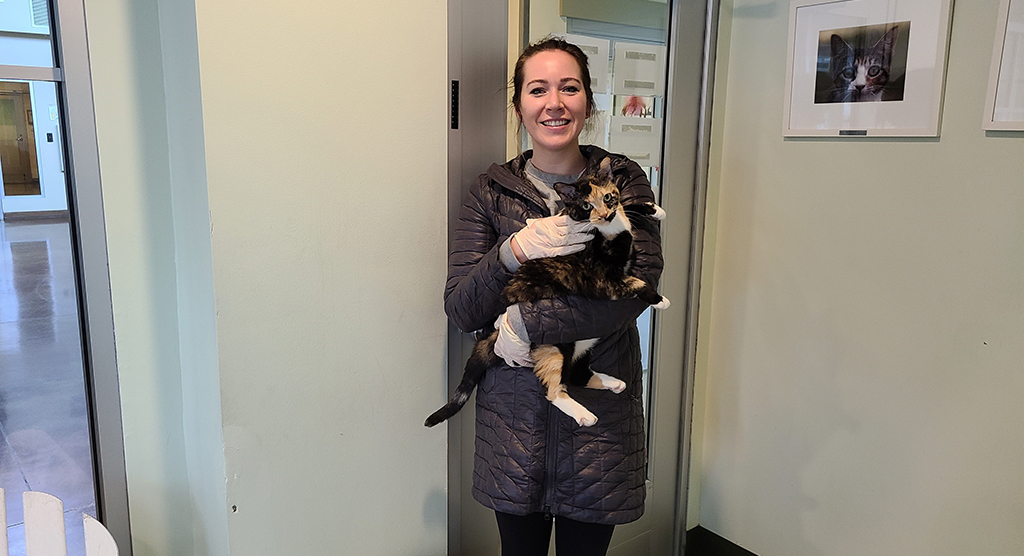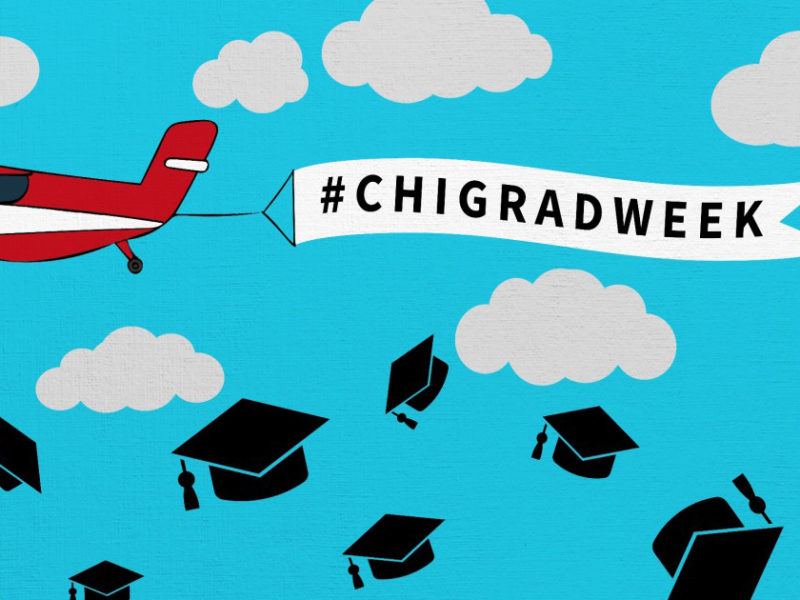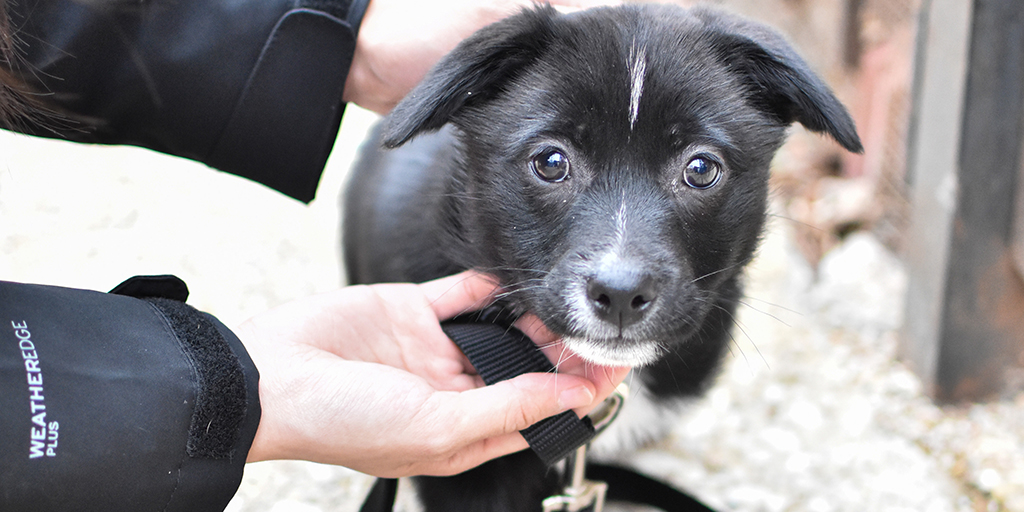
People are adopting pets in record numbers—here’s how shelters are responding.
Usually, images of homeless pets running ragged through empty streets serve as chilling indicators of how deeply crises affect our communities. The current shelter-in-place order, however, has produced a very different kind of image. Isolated by the pandemic, people are fostering and adopting more animals than ever. Local shelters and organizations, like the Anti-Cruelty Society (ACS), PAWS Chicago, and Chicago Animal Care & Control (CACC), have been under a crush of new interest in both fosters and adoptions, even as they face the challenge of providing care to animals under the strain of a global pandemic.
Prepping for a potential shutdown, increasing foster homes was a key strategy for shelters—but they did not expect the huge wave of interest from people isolated by the pandemic.
“In the days leading up to the shelter-in-place order, we were planning for a variety of contingencies,” Co-Founder of PAWS Chicago, Alexis Fasseas, said. “We weren’t sure whether saving homeless pets would be classified as essential. There were so many unknowns.”
To plan for any possibility, from a total shutdown to operating with bare-bones social distancing staff, organizations across the city developed systems to place as many animals as possible in foster homes early on. About two weeks before shelter-in-place, the ACS launched an Emergency Foster program to seek fosters. They also ramped up their message on social media to encourage people to adopt.
“As we watched the impact of the virus grow, we made the decision to empty our shelters as much as possible to provide space for emergency sheltering,” said Jennifer GoodSmith, Vice President of Mission Advancement at the ACS. “This outpouring of interest was amazing.”
Within the first 10 days, the ACS trained and placed 152 animals in foster care, and had a waiting list of 340 people interested in fostering. In the first two weeks of the crisis alone, 196 animals were adopted.
According to Kathy Booton Wilson, a volunteer with Friends of Chicago Animal Care & Control (FCACC), many rescue groups have stepped up and pulled animals to place in foster homes. FCACC continues to foster during the crisis. PAWS Chicago added an Emergency Foster Responder plea to their website.
“Our thought was that [PAWS Chicago] would be best served by getting our existing population into loving and responsible foster homes so we would be able to respond to the rapidly changing environment,” Fasseas said. “We had no way of knowing that thousands of people would join our foster call tree and want to help.”
When the outpouring of interest hit, the PAWS Chicago Medical Center formed assembly lines to pack 30-days of food and medication for each animal. The foster team worked around the clock. Within a few days, most of the 400 animals in their population were in foster.
Nadine the dog pictured with her new family after the PAWS Chicago virtual adoption process.
After animal shelters were deemed essential by the shelter-in-place order, the focus immediately shifted to virtual adoptions.
As with any major operational change, virtual adoptions slowed the pace of placements at first. Volunteers are so integrated into the normal process at PAWS Chicago, but social distancing required them to scale back and change course. Staff was also getting used to a new normal in which adopters don’t come to the shelter. In the early days, adoption staff piloted new processes. Even so, public interest continued to surge—in the first week alone, PAWS Chicago received 1,200 virtual adoption applications
“It’s times like these that we see the best in our community,” Fasseas said. “From the beginning of this COVID-19 crisis, the outpouring of care and concern for our animals has been extraordinary.”
While there has been vast public interest and animals are being placed quickly, open admissions shelters like CACC still take in animals regardless of a pandemic and, thus, have a constant need for people willing to adopt or foster an animal. PAWS Chicago has also been able to continue taking in at-risk animals due to high community interest that allows them to place so many in homes.
“When this first started, we were very worried about our ability to care for so many animals,” Assistant to the Director of CACC Jenny Schlueter said. “We started reaching out for help, and have been blown away by the response. The key to saving lives is to build and maintain a strong community coalition around your shelter. We work together well due to regular and clear communication, flexibility when needed and a strong shared mission.”
While many community outreach programs have had to be suspended or shifted focus with the crisis, shelters are still putting massive effort behind aid for pet owners affected by quarantine, hospitalization, or job loss.
The PAWS Chicago Community Outreach program has adapted to new ways to continue serving the pet owners who depend on them, including dropping off food for people who depend on their Pet Food Bank.
The ACS is committed to providing services as they can. Their existing SAFE program (short-term accommodations for emergencies) began working closely with other Cook County organizations to provide emergency housing for animals whose owners are in medical quarantine or hospitalized. The ACS also operates a service to provide homebound seniors with food and pet supplies for their animals. Even while facing very limited access to pet food, the program has been expanded to provide a pet care kit for anyone impacted by COVID-19 through hospitalization, quarantine or loss of job.
Plans are also in place between the ACS and Hills Pet Nutrition to share 500 pounds to pet food pantries and social service agencies operating food pantries for the most effective distribution.
“The response has been overwhelming,” GoodSmith said. “So overwhelming that we had to put a temporary suspension on new applications until we processed the applications we received. It clearly shows the need for this service.”
Despite all of the silver linings, after the vital spring fundraising season was by and large canceled in Chicago, many shelters are bracing for a loss of funds.
The ACS has to cancel their largest funding raising event, “Bark In The Park,” which was originally scheduled for May 16. With the loss of the funds raised from this event and the suspension of all revenue generating programs, they are in need of financial support. The ACS has launched a digital fundraising campaign called “Bark From The Heart” to help raise funds lost from Bark In The Park.
PAWS Chicago fundraising was down 40 percent in March when compared to last year. They are even more concerned about April, due to the fact that in-person events generally cover the cost of about 25 percent of operations each year.
“So many individuals, families, businesses and charities will be facing economic difficulties this year—PAWS Chicago is no exception,” Fasseas said. “Our work is 100 percent reliant on the support of our community, so we are concerned about the impact that this will have going into the future. Rescuers never rest, and our work to safeguard the health and wellbeing of homeless pets is even more important now.”
Support these local shelters financially
PAWS Chicago – http://www.pawschicago.org/our-work/crisis-support/rescuers-never-rest/
The Anti-Cruelty Society – http://give.anticruelty.org/site/TR?fr_id=1100&pg=entry
Friends of Chicago Animal Care and Control – https://donatenow.networkforgood.org/givingtuesdayfcacc?code=%23GivingTuesday
Stay updated about animals available for foster and adoption
PAWS Chicago – http://www.pawschicago.org/our-work/pet-adoption/pets-available/
The Anti-Cruelty Society – https://anticruelty.org/adopt
Chicago Animal Care and Control – https://www.facebook.com/CACCadoptables/
Schedule an appointment by emailing visitCACC@gmail.com or calling 312-747-1414


